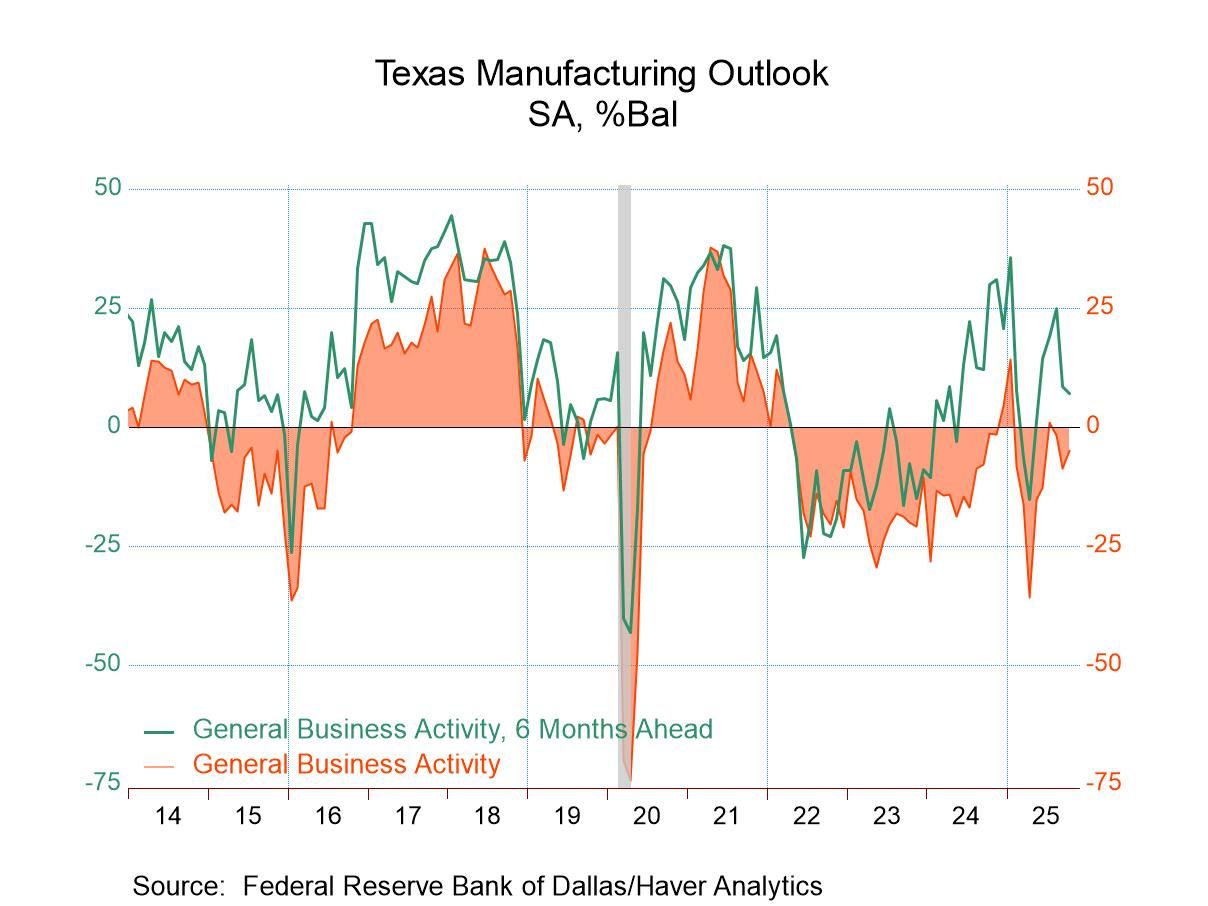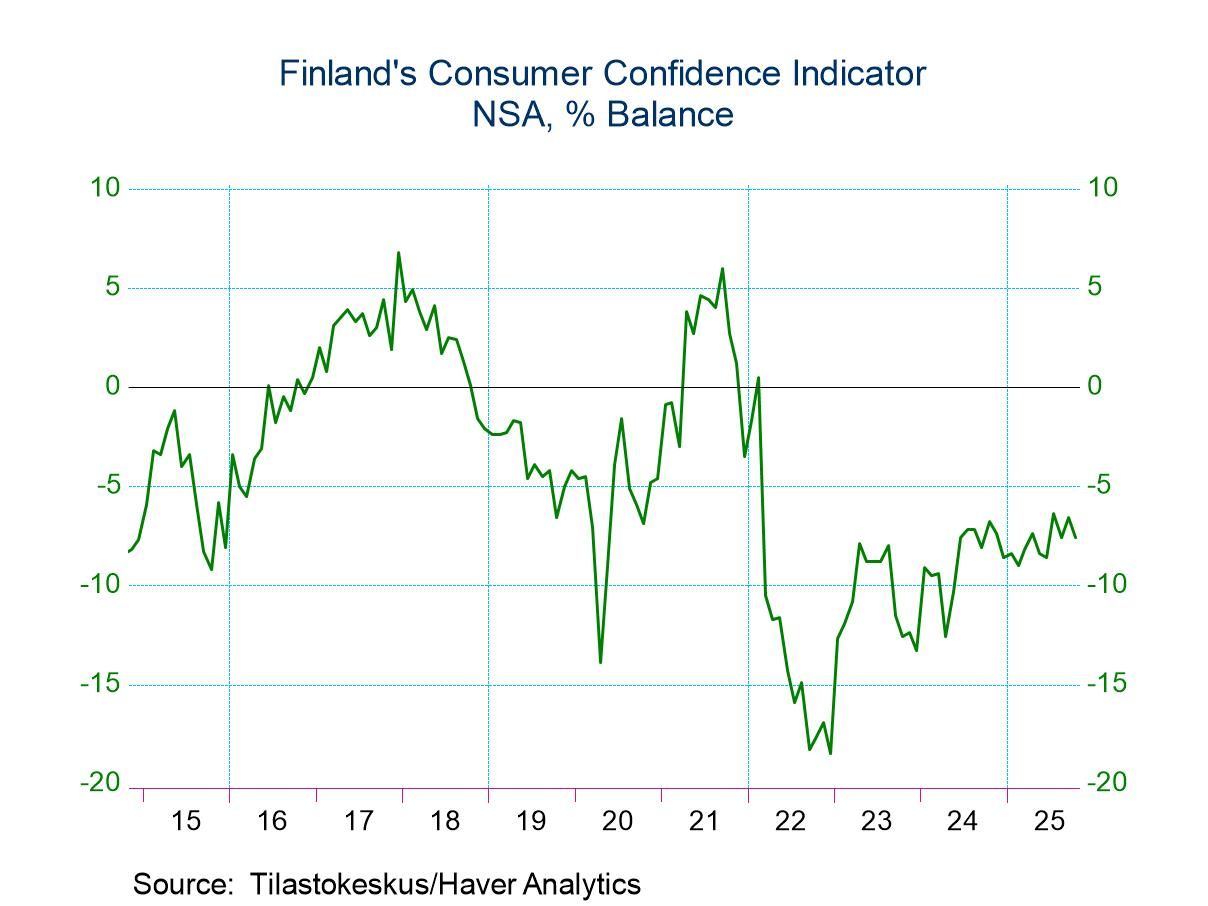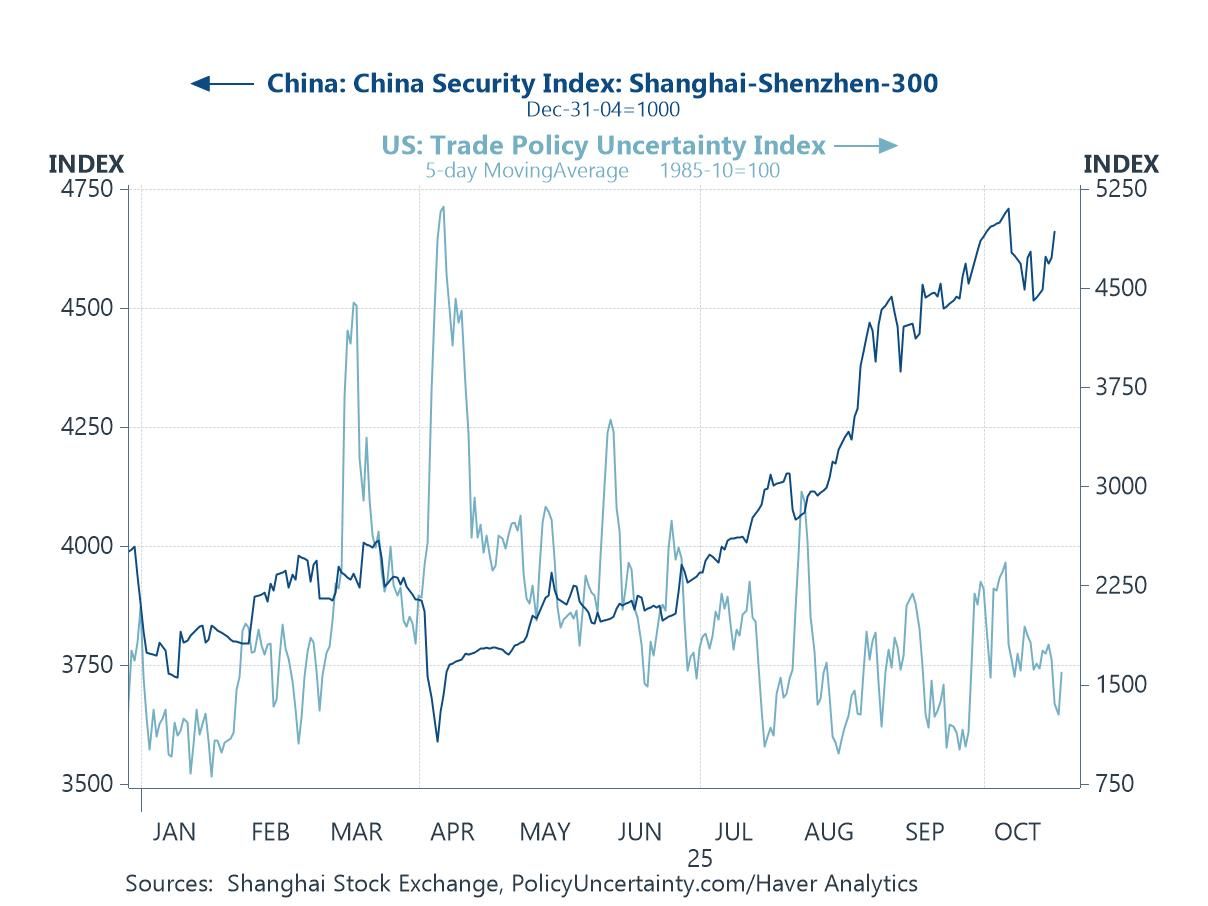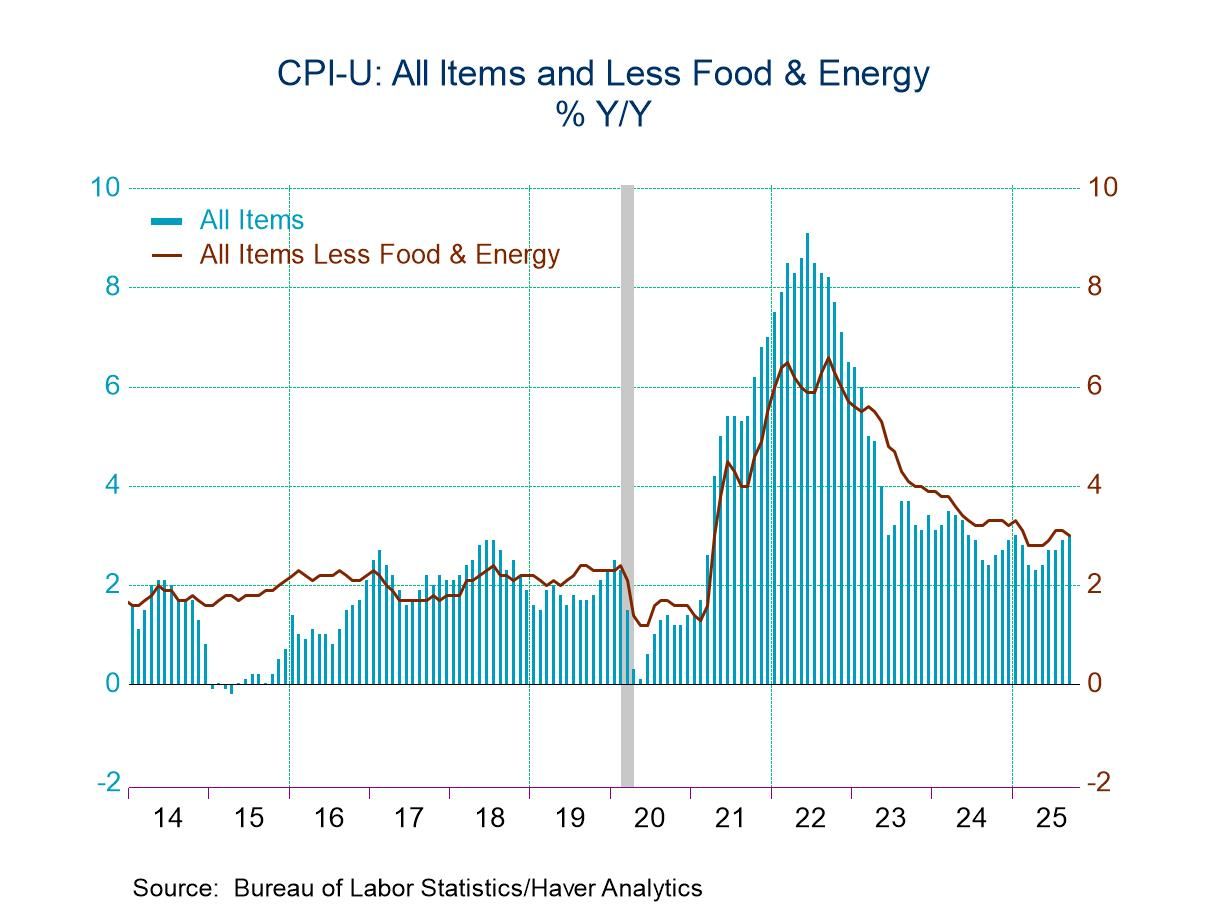 Global| Feb 05 2013
Global| Feb 05 2013European Services PMIs Recover, But...
Summary
In January the European monetary Union's service sector index moved up sharply. Improvement was seen across most of the euro-Area. France and Italy are exceptions. In France the services PMI index fell to 43.57 from a value of 45.19 [...]
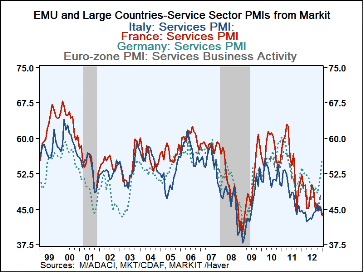 In January the European monetary Union's service sector index moved up sharply. Improvement was seen across most of the euro-Area. France and Italy are exceptions. In France the services PMI index fell to 43.57 from a value of 45.19 in December. In Italy, the service sector barometer fell to 43.89 from 45.56 in December. The reading for France's service sector has been lower than its current reading only 2% of the time. In Italy, the reading for the service sector has been lower only 8.7% of the time. But the euro Area's overall reading in January of 48.62 stands in the 20th percentile of its queue; it is higher than its January value 80% of the time. These are still very weak readings.
In January the European monetary Union's service sector index moved up sharply. Improvement was seen across most of the euro-Area. France and Italy are exceptions. In France the services PMI index fell to 43.57 from a value of 45.19 in December. In Italy, the service sector barometer fell to 43.89 from 45.56 in December. The reading for France's service sector has been lower than its current reading only 2% of the time. In Italy, the reading for the service sector has been lower only 8.7% of the time. But the euro Area's overall reading in January of 48.62 stands in the 20th percentile of its queue; it is higher than its January value 80% of the time. These are still very weak readings.
Germany is showing the most life in EMU. Its service sector index moved up to 55.69 in January from 52.4 in December. The 55.69 reading stands in the 78.5th percentile of the German index's queue. It is higher only about 20% of the time, a relatively strong standing.
In the bottom of the table we offer a look at consumer confidence readings; what you see in the confidence readings more or less echoes what the service sector is doing the top panel of the table. German confidence for example sits in the 52nd percent of its queue, while France is in the bottom 11%, Italy stands in the bottom 4% of its queue. The service sector has a lot to do with how consumers feel about the economy.
While the service sector data create a picture of the European Union, that its conditions are beginning to stabilize, some member countries are still unraveling. Even so there seems to be some stability in the area.
But descriptions of EMU can vary by indicator. Retail sales data which are current through December continue to show outright declines. The volume of retail sales in December in the Zone fell by 0.8%. It is falling at a 6.5% annual rate over three months and at a 2.3% annual rate over 12 months. Retail sales are showing progressively faster deterioration which is not the message in the PMI indices for EMU at all.
Similarly, automobile registrations are unraveling; they are down by 12.8% year-over-year but falling at a 29.6% annual rate over three months as of December. For countries reporting retail sales, all zone members are showing declines over three months except Spain where the volume of sales is up by 2.7% over three months but still down by 10% year-over-year. Germany, France, Italy, Spain, Portugal, Austria and Denmark all show declines in retail sales year-over-year.
UK and Sweden, both EU members not EMU members, show retail sales volume up on the year, 0.3% for the UK and by 2.5% for Sweden. But both of them are still posting declines over three months.
Markets reacted positively to this better-than-expected economic data today. But there can be no doubt that the Zone is still fighting off some difficult problems. The ongoing decline in retail sales, a conventional economic report, tells what going on in the zone in real time and real data is not as good as the PMI's are suggesting- at least not yet. (Retail sales in December are not only declining but their drop is accelerating) The purchasing manager reports which are indicators based on surveys of data from companies operating in the real world are showing some hopeful signs. They are often showing where conditions are headed next better than they assess how things are now. Even so, that is a hopeful message. The conditions they portray aren't as bad as they were. But the PMI reports are still very uneven. The overall EMU reading is still importantly affected by outsized strength in Germany, the region's largest economy. And indicators, not real economic reports, are giving off the relatively strongest signals.
The chart depicting the profile of the various services PMI indices shows a very sharp turn up in Germany compared to the other EMU members. We have to be careful to remember that most of the zone is still languishing at much lower levels of PMI readings indicating contraction compared to Germany. There is a lot of work for EMU authorities to do regarding fiscal policy the banking sector and economic policy in general. Politics are still in a tangle in the Zone as well, making finding a solution even harder.
Robert Brusca
AuthorMore in Author Profile »Robert A. Brusca is Chief Economist of Fact and Opinion Economics, a consulting firm he founded in Manhattan. He has been an economist on Wall Street for over 25 years. He has visited central banking and large institutional clients in over 30 countries in his career as an economist. Mr. Brusca was a Divisional Research Chief at the Federal Reserve Bank of NY (Chief of the International Financial markets Division), a Fed Watcher at Irving Trust and Chief Economist at Nikko Securities International. He is widely quoted and appears in various media. Mr. Brusca holds an MA and Ph.D. in economics from Michigan State University and a BA in Economics from the University of Michigan. His research pursues his strong interests in non aligned policy economics as well as international economics. FAO Economics’ research targets investors to assist them in making better investment decisions in stocks, bonds and in a variety of international assets. The company does not manage money and has no conflicts in giving economic advice.



